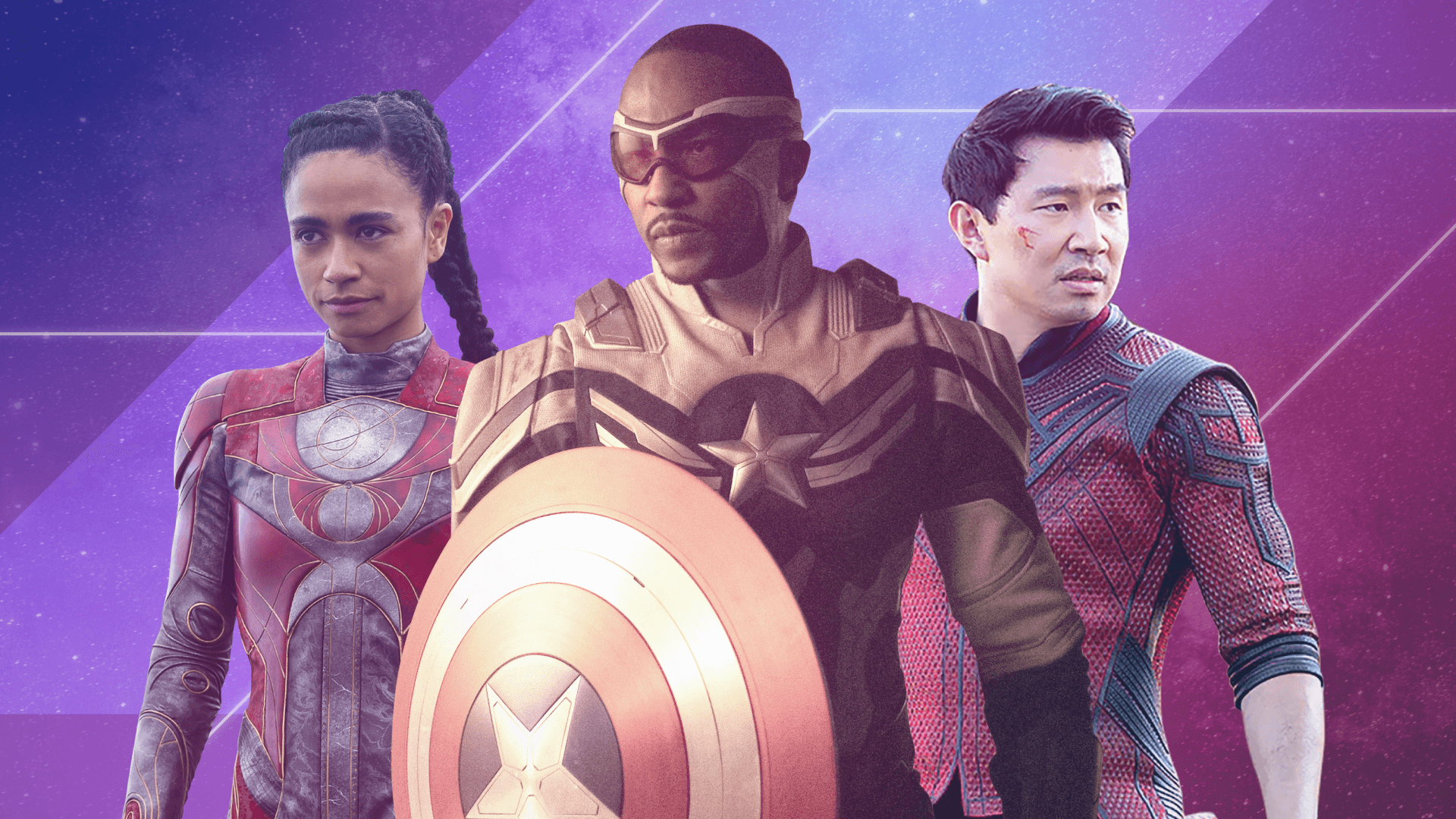Millennials Are Largely OK With the Superhero Genre’s Diversity Efforts. Gen Zers Demand More

MARVEL'S NEXT PHASE
This story is part of a nine-part series considering the business future of Disney’s crown jewel, the Marvel Cinematic Universe. One of the most lucrative properties in the history of entertainment, the MCU is suddenly threatened from multiple fronts: Several of its beloved heroes have been retired, the theatrical model is in peril and the COVID-19 pandemic has accelerated massive shifts in the media consumption habits of superhero fans. Marvel’s future success is not necessarily guaranteed. In order to continue its dominance of global culture over the course of its next phase, the Disney-owned brand will have to adapt.
Marvel and other superhero franchises have recently made an effort to improve on-screen representation. Most Americans think that work has paid off, according to new data from Morning Consult, but there’s still demand for greater diversity among leading characters in superhero films — especially from Gen Z.
Americans Most Want More Superhero Representation of People With Disabilities, Women, Black People
What the numbers say
- Demand was highest for superheroes with disabilities, female superheroes and Black superheroes, according to the survey.
- A net share of 28 percent of U.S. adults (the share who said there should be more of these types of main characters minus the share who said there should be fewer) said they think superhero movies should have more female leads. A net of roughly 1 in 4 (23 percent) said the same of people with disabilities, and a net of 20 percent said they’d like to see more Black superhero leads.
- However, there was negative net demand for LGBTQ+ superheroes (negative 3 percentage points).
Gen Zers, Black Americans, Democrats Drive Diversity Demand
What the numbers say
- Gen Zers — a demographic with which Marvel has plenty of room to grow — are a driving force behind this demand. A net of 44 percent of Gen Z adults said they think superhero movies should have more leading Black characters, and another net 44 percent said the same of female title characters.
- Meanwhile, only a net 25 percent of millennials said they think there should be more superhero films with Black characters. A majority (55 percent) of millennials said superhero films already have an adequate number of Black leads. Thirty-eight percent of Gen Zers said the same.
- Black Americans and Democrats were also more likely than the general public to say superhero movies should include more Black and female leads.
- Superheroes with disabilities are slowly becoming more prevalent as well. In 2015, Marvel and Netflix Inc. released their “Daredevil” series, which stars Charlie Cox as Matt Murdock, a blind vigilante. Lauren Ridloff plays her character, Makkari, as a deaf hero in “Eternals,” and Disney+’s new “Hawkeye” series recently established Jeremy Renner’s Clint Barton (Hawkeye) as being hard of hearing.
- Demand for representation of people with disabilities in superhero films was strongest among millennials, Democrats and Black Americans.
- The relative lack of demand for more LGBTQ+ superhero leads was driven by a strong net negative of 32 points among Republicans and a net negative of 11 points among baby boomers.
The impact
As the Marvel franchise fights superhero film fatigue, potentially aging fandoms and the pandemic’s impact on the theatrical release model, the key to maintaining a thriving franchise in the modern era could be improving representation. Not every demographic is eager to see greater diversity on screen, and many Americans are satisfied with the status quo of superhero movies, but for many moviegoers, representation could make or break their decision to spend at the box office.
In 2018, Marvel Studios released “Black Panther,” its first film with a Black title character. The next year, it released “Captain Marvel,” its first with a female lead. “Black Panther” is the highest-grossing film in the franchise outside of the four Avengers ensemble movies, according to Box Office Mojo, and it shattered several other records at the time of its release. “Captain Marvel” also thrived at the box office, earning a spot among the top 10 highest-grossing Marvel movies.
Following the success of these films, 2021 saw Shang-Chi enter the Marvel Cinematic Universe as its first Asian title character, and Phastos of “Eternals” brought the franchise its first same-sex kiss on screen. The DC Extended Universe has also increased female representation with films such as “Wonder Woman” and “Birds of Prey.”
Majorities of Americans say the current amount of representation in superhero movies is about right. Still, if these franchises want to keep growing, they’ll have to cater to the notable shares of consumers — the youngest ones in particular — who want to see more diversity on screen.
The survey was conducted Nov. 19-22, 2021, among 2,200 U.S. adults, with a margin of error of plus or minus 2 percentage points.
Alyssa Meyers previously worked at Morning Consult as a reporter covering brands and marketing.

